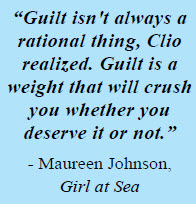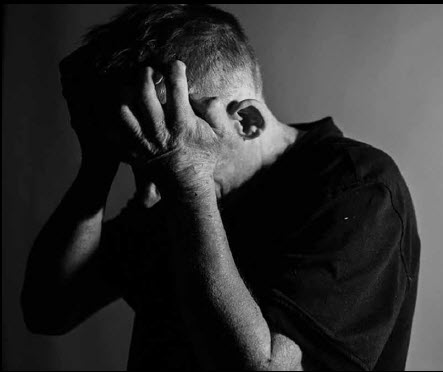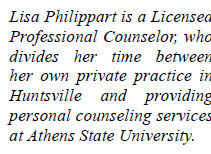The Guilt Of Shame
 By: Lisa Philippart
By: Lisa Philippart
In my last article, we discussed shame, its effect on peoples’ lives, and ways to avoid the shame snare. Many people use the terms shame and guilt interchangeably, but there are definite differences. Shame is the painful feeling that arises from something dishonorable, improper, humiliating, or ridiculous. Guilt is the feeling of responsibility or remorse for some offense or wrongdoing, whether real or imagined. To state this more clearly, shame is a focus on self, guilt is a focus on behavior. Shame is, “I am bad.” Guilt is, “I did something bad.” Guilt comes in many forms, but it can be boiled down to a set of five basic types. Let’s take a look at each type and then learn what you can do to cope when these guilty feelings come your way.

What did you do? This is the most obvious reason to feel guilt…you actually did something wrong. This type of guilt may include harm to others either physically or emotionally. You may also feel guilty because you violated your own ethical or moral code by cheating, lying, stealing, etc. It may also include doing something you swore you would never do again like smoking or overeating. In this form of guilt, there is no doubt that the behavior occurred, so it is common to feel remorse when you’ve done something wrong. Problems occur when you ruminate over this guilt. It is better to just accept the fact that it happened, apologize for it, and then figure out a way to avoid committing the same act in the future. When violating your own personal standards, you can avoid straying by seeking support from others who can hold you accountable. Most of us assume that others place far more importance on our thoughts or actions than they actually do. You may be tormented by guilt for insulting a friend, when the friend actually did not feel slighted at all.

What do you want to do? This is feeling guilty for something you didn’t do, but want to. You’re thinking about doing something which you know is wrong. For example, you are thinking about stealing paper from the office at work. This is a tough type of guilt to handle. It’s true that you didn’t actually commit the act, so you are still on the moral high ground. However, the very fact that you are thinking about it, violates your own ethical standards. Many folks choose the unhealthy route of dealing with this guilt by either repressing the thoughts or denying them. This doesn’t work, because by defending against your feelings, you actually fall prey to them. A healthier route is to recognize that you have these thoughts, accept them as part of who you are right now, and then commit yourself to changing your behavior, so that you don’t follow through on them.
What do you think you did? This is feeling guilty for something you think you did. As you probably know, if you think you did something wrong, you can feel just as guilty as if you actually committed the act. One common source of this type of guilt is the belief that you can curse people by thinking about them negatively or in a hurtful way. We have all done this, and at some level we know that we are being irrational, but it is difficult to rid ourselves of this belief. I think we also know that our memories can be highly flawed. Consider that it is possible that you’ve done nothing wrong, or may misremember, especially if extreme emotions were involved. Before you start accusing yourself of something, make sure that it actually took place!

Could I have done more? This type of guilt is feeling that you didn’t do enough to help someone. Maybe you have been taking care of someone who is ill, but now you have other obligations that you have to fulfill. The guilt will start to get to you as you try desperately to figure out ways to help, despite the toll it’s taking on you. You can decide…or not…whether you want to continue to make sacrifices to help someone. The key here is to separate your desire to help, from the guilt you fear will grab you if you don’t. Acting out of guilt will only serve to drain you further, and eventually make you less effective as a helper.
Am I better than you? This is the guilty feeling that you are doing better than someone else. This is often called survivor’s guilt. Applying not only to people who live when others in the same situation have died, though, this kind of guilt also characterizes those who make a better life for themselves than do their family or friends. The only way to “cure” yourself of survivor’s guilt is to remind yourself of how proud or glad or devoted those who love and care for you are. You can remind yourself that feeling guilty will not help bring someone back to life or make others who love you feel better about themselves. You can gain your inspiration from the knowledge that your life and efforts are a tribute to them. You are giving yourself a shot at success that your loved ones would want you to have.
You can’t live a completely guilt-free life, but you can keep the emotion within manageable bounds. Guilt in and of itself isn’t a destructive emotion. It can either help you to gain greater self-understanding, or become all-consuming and get the best or worst of you.
By: Lisa Philippart
Licensed Professional Counselor